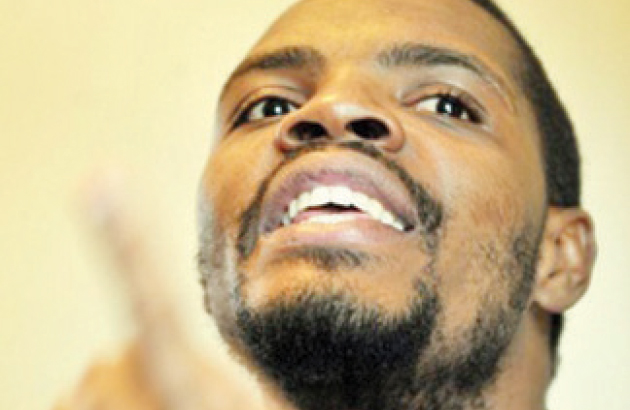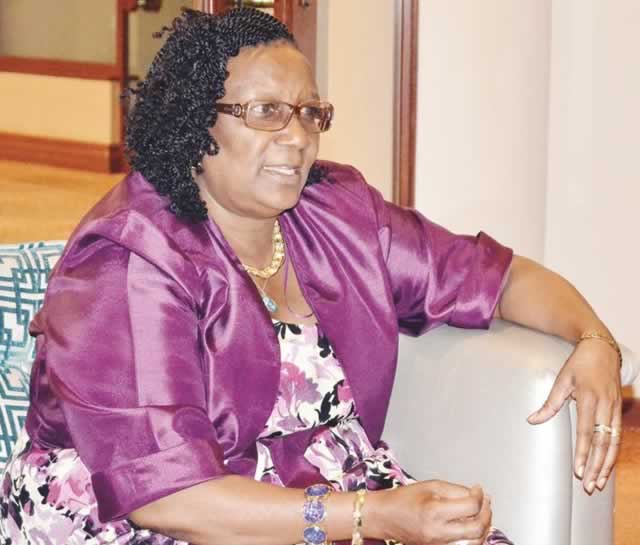‘SA whites are worse than Hitler’

Johannesburg — White South Africans are worse than Hitler, Education Minister Blade Nzimande is anti-Black, Wits University is an animal farm and he will never work for the fathers of “arrogant Zionist Jewish kids”.
These are the words of Mcebo Dlamini, known as the now suspended University of Witwatersrand SRC president who professed his admiration for Nazi leader Adolf Hitler, in an interview with News24.
Dlamini had written on Facebook last month that he admired Hitler for his “charisma and organisational skills” and that there was an element of Hitler in all white men.
These statements were followed by shock, attacks as well as his subsequent suspension as president of the Student Representative Council a few days later.
But on a Wednesday afternoon the post-graduate law student took part in a wage protest alongside the university’s contractual cleaning staff in Senate House.
Holding his tablet in one hand, Dlamini sang and danced with the mostly female workers as they made their way to the steps of the Great Hall, the most popular symbol of Wits University.
Bidding farewell to the women, he promised to join them again at lunch time the next day, and the next if necessary until their plight was heard by the university’s management.
Dressed in a red Steve Biko t-shirt, blue jeans and brown Lecoq Sportif sneakers, the 27-year-old is fighting his own battles with the institution. Dlamini was removed from his position pending an appeal against his expulsion from the institution for misconduct.
Earlier this month, Wits Vice-Chancellor Adam Habib said in a statement that Dlamini had been found guilty of misconduct by a disciplinary panel in February and given a sentence of one year suspended exclusion in respect of the charges against him. Habib said it was not in the best interests of the university for him to continue to hold office while having a disciplinary finding against him.
As we sit under a tree near the popular Great Hall steps, Dlamini explains that he was found guilty of misconduct after fighting with a fellow student inside a dining hall in 2014. “That is what the university is not telling the public, I fought with another student, we physically fought, it was not an assault.’
He says he and the other student made peace and forgave one another shortly after the incident, but that the university decided to pursue the matter anyway. “It happened in January 2014. [The case] didn’t sit up until I took office.”
He described Wits and Habib as hypocrites because another SRC member, which he did not name, allegedly had 22 sexual assault charges against him but that no action had been taken against the student for his actions. Dlamini said he had told broadcaster Jacaranda FM about the matter.
“That’s when I said Wits is an animal farm, some animals are better than the others and I still maintain that Wits is an animal farm . . . The case has not seen a day, it hasn’t been prosecuted. Twenty-two counts of sexual harassment. One misconduct and I am out of office?”
He accuses the university of working to maintain its “white supremacy” at the expense of black minds.
Dlamini, who describes himself as a ghetto boy, was born in Swaziland in 1987. Both his parents were uMkhonto we Sizwe military veterans who were in exile at the time.
He was raised by his mother in Swaziland, they then moved to Mozambique when he was 5-years-old. They moved back to South Africa when he was 10.
He said moving back home to Diepkloof, Soweto where his extended family stayed, was easy. “Township life is very easy, you easily fit in because you don’t even try. When you set foot there, there are people willing to welcome you, there is that culture in the township of welcoming.
“The Ubuntu, the friendship, they are just excited, everyone is excited to see a new person. You make friends within a day or two, so yeah, I can say I’m a ghetto boy.”
He attended primary school in Orlando West and matriculated from an all-boy Model C school in Johannesburg, which he prefers not to name.
Having experienced both sides of the education system, Dlamini has a vested interest in highlighting the need for quality education across all races.
He says growing up in a township where poverty and struggle was a constant reality, opened his eyes to the inequalities that existed in society.
“You face poverty head on, even if you are not poor but you interact with it on a day-to-day basis. There are service delivery protests, there are protests every day, there are taxi protests, everything is happening in the township.”
He believes a good education will assist black youths restore their self-pride. “The way things are now, the status quo… if you are uneducated you can’t compete.
“Education is a new colonial master, they are using education to colonise us because they will say to you ‘The opportunities are equal between a black child and a white child as long as you have the necessary qualifications’. Fine that is true, but do the black majority have access to the institutions of higher learning?”
The high fees of universities also form part of the systematic exclusion for the poorest of the poor, he says.
“That is colonisation of a special type because the black majority will remain in the periphery. The white minority are still having access to better education because they own the means of production.
“When we won independence in 1994, we adopted and inherited the country and the system as it was. A white man who owned two farms still owned two farms, a white man who owned 100 donkeys still owned 100 donkeys, a black man who stayed in a shack remained in a shack.”
He believes his role is to ensure that Black people have access to higher institutions of learning, so that they can ultimately gain economic freedom. “But we have to be educated first, because we will take the land, we will take the minerals, the banks, everything. I’m advocating for Black Power, that’s what I’m advocating for.” — AFP








Comments